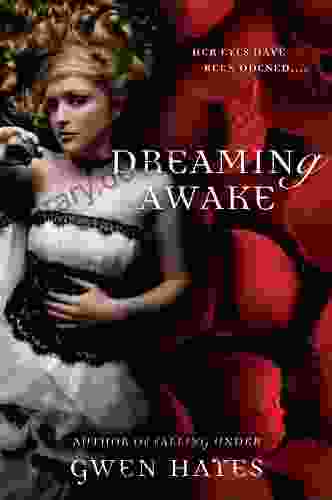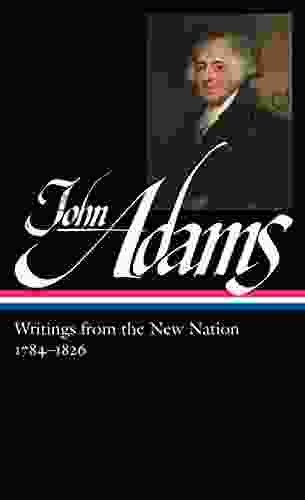The Performance of Modernity: Accents on Shakespeare

4.6 out of 5
| Language | : | English |
| File size | : | 512 KB |
| Text-to-Speech | : | Enabled |
| Screen Reader | : | Supported |
| Enhanced typesetting | : | Enabled |
| Word Wise | : | Enabled |
| Print length | : | 226 pages |
The use of accents in Shakespeare's plays has been a subject of debate for centuries. Some critics have argued that accents can help to create a sense of authenticity and realism, while others have argued that they can create a sense of distance and alienation. In this article, I will explore the performance of modernity in Shakespeare's plays, focusing on the use of accents to create a sense of time and place.
Accents and Authenticity
One of the main arguments in favor of using accents in Shakespeare's plays is that they can help to create a sense of authenticity and realism. By using accents that are specific to a particular region or time period, actors can help to create a sense of place and time for the audience. For example, in the Royal Shakespeare Company's production of Hamlet, the actors used a variety of accents, including Elizabethan English, Scottish English, and Irish English. This helped to create a sense of authenticity and realism, and it also helped to distinguish the different characters from each other.
However, some critics have argued that using accents in Shakespeare's plays can actually be counterproductive. They argue that accents can create a barrier between the audience and the actors, and that they can make it difficult for the audience to understand the play. For example, in the 1995 film adaptation of Richard III, Ian McKellen played the title role with a strong Yorkshire accent. This accent was so thick that it was difficult for some audiences to understand what he was saying. As a result, the film was not as successful as it could have been.
Accents and Alienation
Another argument in favor of using accents in Shakespeare's plays is that they can create a sense of distance and alienation. By using accents that are different from the audience's own, actors can help to create a sense of otherness. This can be effective in creating a sense of tension and suspense, and it can also help to highlight the play's themes.
For example, in the 2005 film adaptation of Macbeth, the actors used a variety of accents, including Scottish English, Irish English, and American English. This helped to create a sense of alienation and otherness, and it also helped to highlight the play's themes of ambition and power.
However, some critics have argued that using accents in Shakespeare's plays can actually be alienating for the audience. They argue that accents can create a barrier between the audience and the actors, and that they can make it difficult for the audience to connect with the play. For example, in the 2012 film adaptation of Romeo and Juliet, the actors used a variety of accents, including American English, British English, and Australian English. This accent was so distracting that it made it difficult for the audience to focus on the play.
The use of accents in Shakespeare's plays is a complex issue. There are strong arguments to be made for and against their use. Ultimately, the decision of whether or not to use accents in a production of Shakespeare is a matter of artistic judgment. However, it is important to be aware of the potential benefits and drawbacks of using accents before making a decision.
In my opinion, the best use of accents in Shakespeare's plays is when they are used to create a sense of time and place. Accents can help to create a sense of authenticity and realism, and they can also help to distinguish the different characters from each other. However, it is important to avoid using accents that are so thick that they become difficult for the audience to understand. Accents should be used to enhance the play, not to distract from it.
The performance of modernity in Shakespeare's plays is a complex and fascinating subject. By exploring the use of accents in these plays, we can gain a better understanding of how Shakespeare's plays have been performed and interpreted over the centuries. We can also gain a better understanding of how accents can be used to create a sense of time and place, and how they can be used to create a sense of distance and alienation.
4.6 out of 5
| Language | : | English |
| File size | : | 512 KB |
| Text-to-Speech | : | Enabled |
| Screen Reader | : | Supported |
| Enhanced typesetting | : | Enabled |
| Word Wise | : | Enabled |
| Print length | : | 226 pages |
Do you want to contribute by writing guest posts on this blog?
Please contact us and send us a resume of previous articles that you have written.
 Page
Page Chapter
Chapter Story
Story Genre
Genre Paragraph
Paragraph Sentence
Sentence Shelf
Shelf Glossary
Glossary Preface
Preface Scroll
Scroll Codex
Codex Tome
Tome Bestseller
Bestseller Classics
Classics Library card
Library card Narrative
Narrative Memoir
Memoir Reference
Reference Dictionary
Dictionary Narrator
Narrator Character
Character Resolution
Resolution Librarian
Librarian Card Catalog
Card Catalog Borrowing
Borrowing Stacks
Stacks Study
Study Research
Research Reserve
Reserve Academic
Academic Journals
Journals Rare Books
Rare Books Literacy
Literacy Study Group
Study Group Thesis
Thesis Dissertation
Dissertation Awards
Awards Reading List
Reading List Book Club
Book Club Theory
Theory Isabel Otero Bowen
Isabel Otero Bowen Becky Goldsmith
Becky Goldsmith Belva Plain
Belva Plain Susie Basanda
Susie Basanda Ryan Reisert
Ryan Reisert Tanya Maria Golash Boza
Tanya Maria Golash Boza Matson Taylor
Matson Taylor Bela Zombory Moldovan
Bela Zombory Moldovan Joyce Mitchell
Joyce Mitchell Bruce Hansen
Bruce Hansen Bauer Doski
Bauer Doski Pramod Kesav N
Pramod Kesav N Catherine Cheung
Catherine Cheung Barbara J Gilbert
Barbara J Gilbert C D Gorri
C D Gorri David Bowman
David Bowman Rachel De Lahay
Rachel De Lahay Byron Edgington
Byron Edgington Elsa Watson
Elsa Watson Barbara Krasner
Barbara Krasner
Light bulbAdvertise smarter! Our strategic ad space ensures maximum exposure. Reserve your spot today!

 Salman RushdieHistorical Western Romance Novels: A Literary Expedition into the Untamed...
Salman RushdieHistorical Western Romance Novels: A Literary Expedition into the Untamed... H.G. WellsFollow ·7.9k
H.G. WellsFollow ·7.9k Robert Louis StevensonFollow ·7.3k
Robert Louis StevensonFollow ·7.3k Haruki MurakamiFollow ·15.3k
Haruki MurakamiFollow ·15.3k Emilio CoxFollow ·5.4k
Emilio CoxFollow ·5.4k Forrest ReedFollow ·18.9k
Forrest ReedFollow ·18.9k Vladimir NabokovFollow ·10.9k
Vladimir NabokovFollow ·10.9k Allan JamesFollow ·6.6k
Allan JamesFollow ·6.6k Jerome PowellFollow ·8.8k
Jerome PowellFollow ·8.8k

 Ralph Ellison
Ralph EllisonHealth Care Global Viewpoints: Samantha Whiskey
Samantha Whiskey is a global health...

 Gabriel Garcia Marquez
Gabriel Garcia MarquezTeacher Educators' Reflections on Culturally Relevant...
In today's...

 Levi Powell
Levi PowellSustainable Project Management: The GPM Reference Guide...
In today's rapidly changing world,...

 Isaac Bell
Isaac BellThe Captivating World of "Dreaming Awake Falling Under"
A Journey Through...

 Clarence Brooks
Clarence BrooksGovernance Regulations Valuations Mergers And...
In today's complex and ever-changing...
4.6 out of 5
| Language | : | English |
| File size | : | 512 KB |
| Text-to-Speech | : | Enabled |
| Screen Reader | : | Supported |
| Enhanced typesetting | : | Enabled |
| Word Wise | : | Enabled |
| Print length | : | 226 pages |












